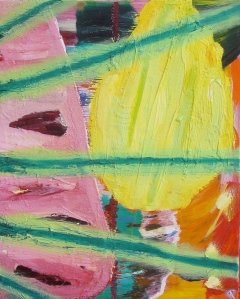THE LAWN as we know it must go. The perfect-looking, closely cropped, uniform grass is unhealthy for people and the planet. If we are serious about our commitment to address climate change, we must look for ways to eliminate petty luxuries like our lawns that are wasteful and have no bearing on our survival.
Individually, it may not be much, but collectively the way we maintain our lawns has a significant negative impact. More important, by taking ownership of the problem rather than simply referring climate change to the big players — the larger-than-life corporations and political leaders that so far have failed to take significant action — we affirm a belief in ourselves.
Harnessing our energy use by rethinking our lawns is a way of asserting our individual and collective will, of voting with our actions rather than at the ballot box, and it may be more effective.
We must take full responsibility for the consequences of our actions as consumers. We learned to snuff out our cigarettes when we discovered that they caused cancer, and later took steps to eliminate second-hand smoke. We taught ourselves to buckle our seat belts, and to recycle our plastic, cans, paper, and bottles, once we understood the dangers to ourselves and to society. Surely we can learn to recreate the precious landscapes surrounding our homes to make them healthier — and more beautiful — for all.
The negative consequences of the perfect lawn are both material and spiritual. By conforming to an aesthetic that promotes monoculture (the unvarying cultivation of a single crop or variety) through the use of harmful inputs like herbicides and synthetic fertilizers, and then requires inefficient, polluting gasoline mowers (or other non-human powered energy sources) to control, we abrogate our responsibility not only to each other, but to future generations. There simply is no good reason to exact this toll on our environment.
There are other, better ways to manage our landscapes. Though it may take some patience and practice, creating a new aesthetic for our lawns can be more rewarding and pleasing than a monolithic crewcut of fescue.
In agriculture we now understand the negative, unintended consequences of the widespread practice of monoculture, ranging from greater risk of disease to soil depletion. We buy more organically grown food and support practices like integrated pest management that reduce chemical inputs and create more sustainable ecosystems.
More broadly, our culture is moving, however slowly, toward greater tolerance when it comes to issues like gay marriage and immigration. Yet we do not celebrate diversity when it comes to our lawns.
But multiculturalism can enrich them. Clover, to take just one species many homeowners try to eradicate, adds nitrogen to the soil, and its flowers offer a source of food for our beleaguered honeybees; milkweed can nourish our failing monarch butterfly population.
For the essential tasks of heating our homes and driving to and from our places of employment, we consciously seek to limit our consumption of fossil fuels — to reduce our carbon footprint — through vehicles with greater gas mileage, electric cars, and Leadership in Energy and Environmental Design (LEED) certified buildings. But when it comes to the energy required to maintain our pristine lawns, we look the other way.
The cost of a perfect lawn symbolizes a larger problem that helps explain these contradictions. More than simply wasting fuel and polluting the air, the lawn mower distances us from our senses, makes us numb to the real impact of our actions on the earth and its inhabitants. The machines are so loud that many people now routinely wear earphones while mowing, oblivious to or inconsiderate of their neighbors. The sound of the mower obliterates the natural world, subtly desensitizing us to it.
These are powerful, dangerous machines requiring our full attention. A lapse in concentration could prove injurious, even fatal. A neighbor walking by, a cardinal fluttering in the branches, a volunteer foxglove that has dared to cross the threshold of our neatly edged gardens, are all subservient to the mower’s demands.
We are facing a national obesity crisis; most Americans would benefit from more exercise. Even people who work at being physically fit pay good money to buy equipment like tennis rackets or running shoes, or join (and drive to) a gym, yet insist on the ease of a power mower rather than opt for the healthy, utilitarian exercise of pushing a hand-powered machine on their hard-earned land.
Mowing with a push mower costs nothing but good, physical effort, and it fosters an intimate relationship with the complex ecosystem of the fecund earth surrounding our homes. Pushing the mower takes just minutes longer than using the machine, and is sound cross training for any sport or other physical activity one practices or enjoys.
Most of all, the push mower reminds us that a closely cropped lawn does not come without a cost.
Some people argue that their lawn is too big for a push mower. While this begs the obvious question of, “Why?,” the usual answer is that some areas are so overrun with ticks, mosquitos, and other pesky bugs that a larger expanse of lawn is essential to health and happiness. Fair enough. We all make tradeoffs.
But even in these cases, it may not be necessary to mow the entire lawn in the same gas-guzzling manner, or as often. There are many attractive ground covers that eventually spread into thick carpets that can help keep the bugs at bay. Shrubs, perennial or vegetable gardens, and other plantings can further reduce the areas needing to be mowed, and are far more compelling. Grass that we seldom walk on needn’t be carpet thin.
Change, especially when it comes to landscape, comes over time; there is no reason to reject the idea of rethinking one’s lawn simply because it cannot be done completely or all at once. To all things there are exceptions, of course, and I don’t like sanctimony. Some people have physical limitations that make a power mower their only viable option. I get that. There are more and more “greener” machines coming on the market that use electricity or solar power. I am all for these.
But even more energy efficient machines do not address the bigger issue of our retreat from our environment, our slavishness to an aesthetic that diminishes our experience of the natural world, in all its diverse beauty.








A very thoughtful commentary that I am sharing with others. My whole lawn is clover, not grass!!!
Thank you, Elena (and the bees thank you, too)!
Russ, nice brush work on Pins and Needles. Cool to see it up close. Eric
Thanks Eric. How’s your painting going? Lunch?